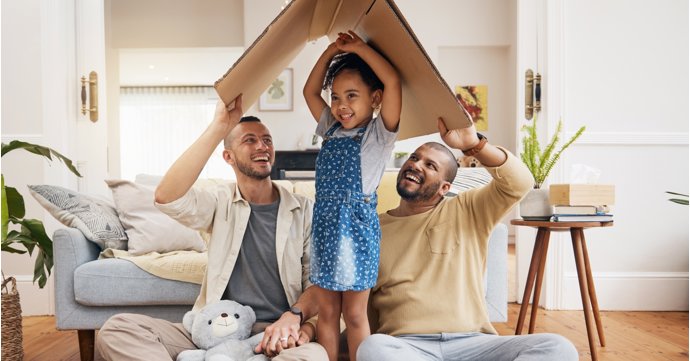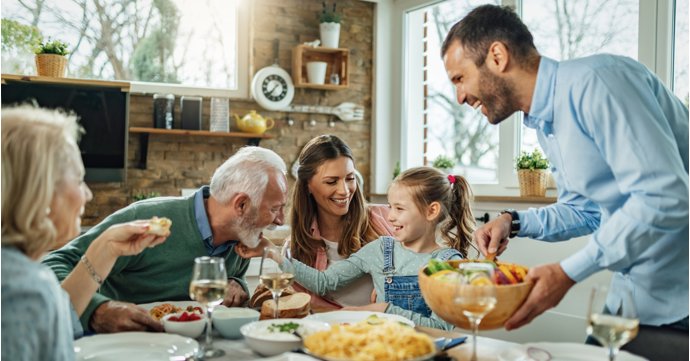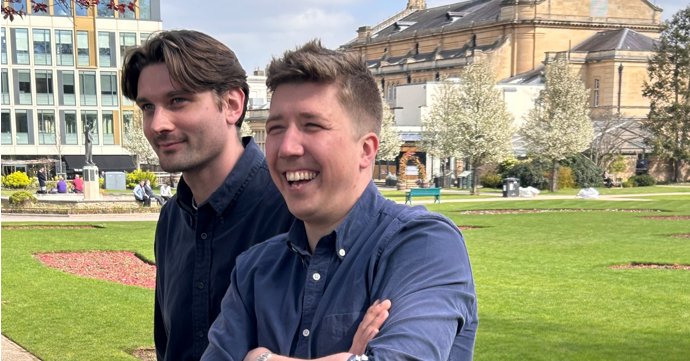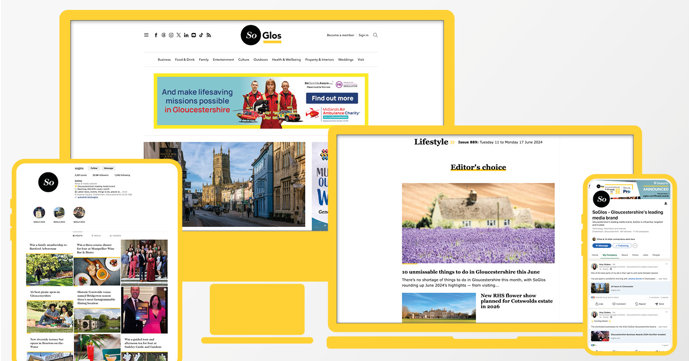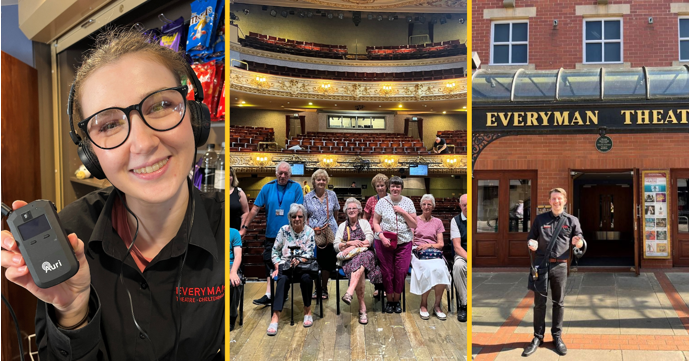Gloucestershire couple Steve and Judy Hutchinson have been fostering for over 30 years. Now, with their own grown-up son continuing the family tradition as a foster carer himself, SoGlos sat down with them to hear all about their journey with Gloucestershire County Council Fostering.
What inspired you to start fostering?
Judy: I've always loved looking after young children. As a Six Former, I used to spend one evening a week in a local children's home — my parents knew the lady who ran it. I used to go there to help out, sorting tea, bathing the children and putting them to bed.
I think I actually pestered my own parents a few times when I'd seen a sign saying 'foster carers needed', saying 'you ought to do that' but they didn't.
Steve: As for me, I had been involved in running activities for children with holiday clubs, after school clubs and in the voluntary way, usually with churches. There would be some children who would come early and then hang around afterwards and I often wished I could look after them more — particularly those that appeared less well-cared for.
Of course that's not to judge anybody, but I'd think maybe I could help with their reading or clean them up. You can't solve problems for every single child, but you can perhaps help that one child through a difficult patch, whether it's just a temporary thing and they go back to their family or if it's given them a new start with a new family.
You have two of your own children, how old were they when you started fostering?
Judy: I think they were about six and eight when we were training, so probably about seven and nine — quite a bit younger than the two children who came to stay the first time. But as we had childminded children in the house since they were small, they had been used to having young children around. They were always very good with them and the young children loved having them around to play. They were like big brothers.
Steve: The childminding started off when our neighbours had a baby; they were telling us they had to go back to work and needed help looking after them. So we hadn't planned to child mind, but we blew into it.
Judy: It was 'the norm' for our household to have extra people around who treated it like their home. Their mothers would come and pick them up and they'd be sprawled on the sofa upside down! I'd say, well, while they're here, it's their second home.
What was it like having a foster child for the very first time?
Judy: Both scary and exciting. We'd been building up to it and the first that came here was just for a few weekends. They also came for a slightly longer period while their mother was having another baby.
Steve: But initially, it was weekends — one was four and one was nine months old. They weren't particularly difficult. One was very loud and one was very sleepy. We were very much involved in playing with them and taking them to the park; we enjoyed it.
Has your training with Gloucestershire County Council Fostering changed a lot over the years?
Judy: There's much more breadth of training which you can do either in-person or online and there are advantages of both.
Steve: The advantage of being in-person is that you meet other foster carers and you've actually got a person leading the course in order to address questions; and then online, you can do half an hour here and there, to get through the course at times that suit you best.
If there's a young child living here, you can't always get out to an in-person training session, so we find a combination of both ways works well. We also have a monthly support group that meets around the corner in our church building, which we facilitate with our social worker, who will often find a speaker to deliver training there for us. Sometimes we invite trainers with a specific purpose, addressing an aspect of training that a member of the group has asked for.
What motivates you to keep fostering?
Judy: It's because we love doing it! It's become a way of life and it's very thrilling to see a child come from a very chaotic place, settle down and make progress. To help them form a bond and attachement and watch them continue to make milestones as they're transfered to another family is very exciting to be a part of; it's not something we want to give up yet.
Steve: It's always hard when they go. People sometimes say to me, 'I couldn't do that because I could never let them go', and that's understandable but if everybody in the world said that, what would happen to these children? It comes back to what I've said before: it's one child at a time.
But all the same, Judy often says that a little piece of her heart goes with each child and it's the same for me. It can be quite intense so we take time to recover after each placement to look after each other; thhen after a while, when our supervising social worker asks if they can put us back on the list, we look at each other and say, 'well, perhaps we've got another child in us.'
What do you think makes for a successful foster placement and how do you make sure that the children feel safe and loved?
Judy: It's trying to see life through their eyes; not judging what position they're in and how they're behaving. We like to use the PACE model of therapy, which involves being playful, acceptance, curiosity and empathy.
It's important to accept the child as they are; consider why they might be behaving a certain way and try to get behind those reasons; and show them that you recognise it's really hard moving away from home to live with different people and try to help them through it.
I always say that I want their time here to be a positive experience, not a time where they're missing out. We always hope they'll come out of it with really positive, happy memories.
Steve: Practically, we have a bit of a routine. We always eat our meals at the table, which might not be something they've done before. We make sure to give them food they actually like. We try to implement a bit of an evening and morning routine, too, and that seems to help them settle.
We've got lots of toys here for different ages. We can change the toys around and we love it when they're comfortable enough to lay on the floor playing with the toys. When they first come, they're very anxious and worried about whatever else is going on but when they begin to settle down, you can see they're getting involved in proper play as if they've not really had the chance to do that so much before.
Are you still in touch with any of your previous foster children?
Steve: There's a couple of children who send Christmas card every year even though they were here probably 10 or more years ago.
And there's others that we still see and call here; one of whom is now 30 and has her own child — and it's very special that she still wants to stay in touch. Sometimes she'll ask for help or advice or she'll just bring her little one around here and we'll play.
One of your sons is a foster carer himself now. How do you think his experience growing up with foster siblings led him to foster as an adult?
Judy: We didn't want it to negatively affect our own children — they used to get very upset when children left if they'd been with us for a while. We used to say, 'we can stop', but they never wanted us to.
They actually said it did nothing but good because it gave them a picture of what other families go through and that they were fortunate to have stable family unit.
I think our son wanted to do it for quite a long time.
Steve: And now, we're almost like foster grandparents. Our son and his wife have got a three-year-old and a one-year-old at the moment and when we pop up to see them, their foster children call us their grandparents, just like our own actual grandchildren do. So that's lovely as well.
What would you say to people before they consider fostering?
Judy: It's a way of life and you must treat these children, as far as possible, like your own.
Steve: The whole family needs to be behind it and wanting to do this — and there's an immense amount of good to be gained from fostering.
Judy: But it's not just about looking after the children, you need to do regularly put in work and you need the capacity to be able to do all of that well.
Steve: And that's why you need to be united and help each other out. It is a lifestyle and our foster children are an additional member of the family.
It's not a job. You can't treat the children like
they're part job. You've got to give them the love you would your own child, with care and time and you've got to fight for them.





